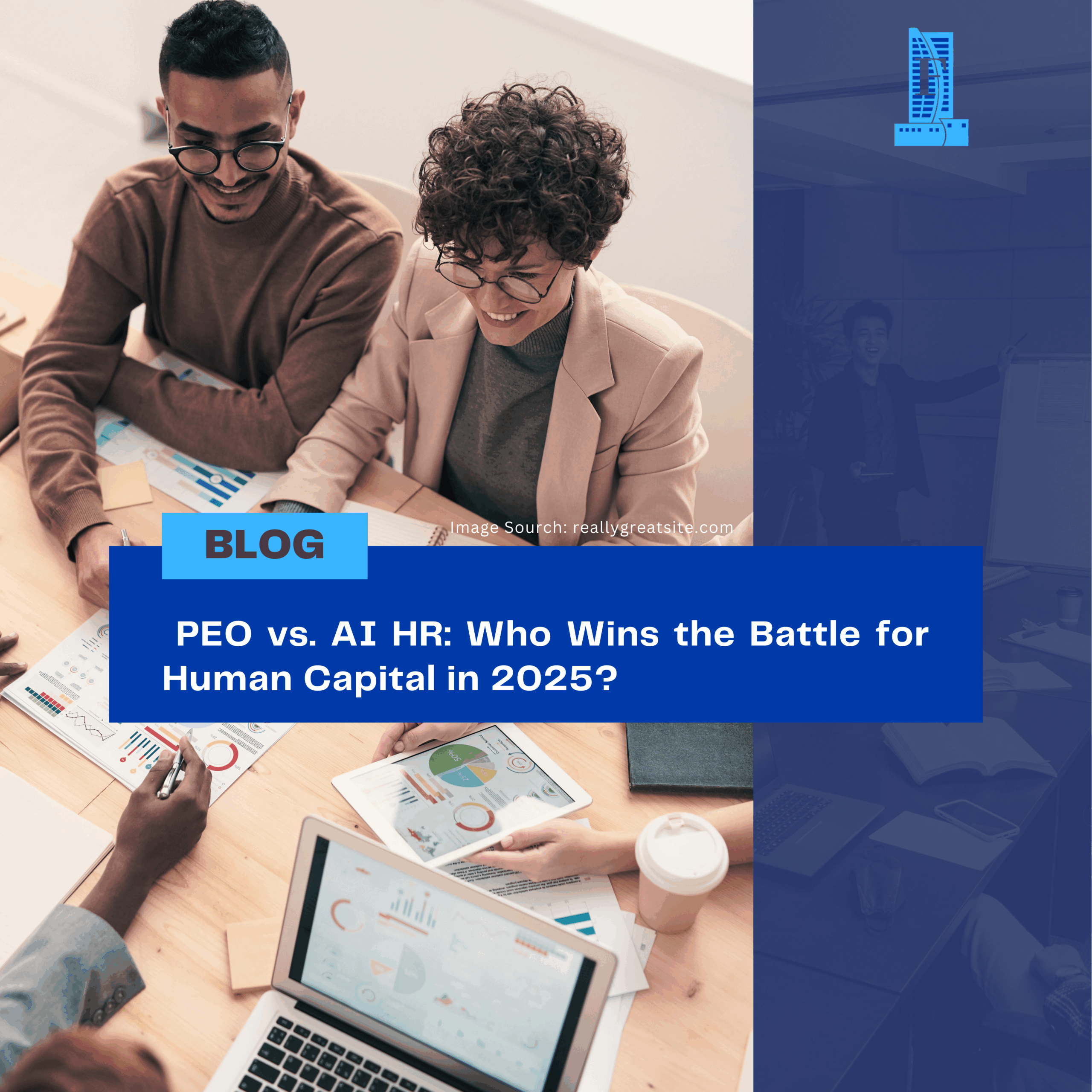In 2025, HR is at a crossroads. On one hand, artificial intelligence is powering a new generation of tools promising faster recruitment, automated onboarding, instant performance reviews, and real-time employee sentiment analysis. On the other hand, Professional Employer Organizations (PEOs) are evolving just as rapidly offering hands-on human support, deep compliance expertise, and fully outsourced HR experience. The debate is no longer theoretical. Businesses must now choose: do we trust an algorithm or partner with a people-first team? This article unpacks the real-world tradeoffs between AI-driven HR platforms and PEOs in the battle to support, retain, and grow your human capital.
1. What AI HR Promises—and Where It Falls Short
AI tools have transformed recruitment, screening, and onboarding. A chatbot can handle basic employee questions. A predictive model can rank job applicants by likely success. Algorithms can even suggest which employees may quit next quarter. But here’s the problem: AI excels at patterns, not nuance. When it comes to performance disputes, sensitive HR complaints, complex legal issues, or local compliance in multiple jurisdictions, AI is still reactive and incomplete. It can assist, but it cannot lead. Companies relying solely on AI HR platforms often realize too late that they still need a dedicated HR specialist—or worse, a lawyer. The illusion of automation ends where complexity begins.
2. How PEOs Are Winning with Human-Led Intelligence
PEOs bring the human layer back to HR. They offer full HR administration—recruitment support, payroll, benefits, compliance, terminations—but with real people behind every decision. Need help navigating new labor laws in Texas and California? A PEO has experts on staff. Want advice on terminating an underperformer without risking a wrongful dismissal claim? A PEO guides you, step by step. Unlike AI tools, PEOs handle the mess—the gray areas, the edge cases, the emotional tension in a workplace dispute. More importantly, they build long-term context about your company, culture, and goals. That insight can’t be scraped from a resume or summarized in a dashboard. It comes from partnership.
3. The Hybrid Trap: Why Combining Tools Still Doesn’t Fix the Gap
Some companies try to have it both ways—adopting AI HR platforms while keeping a fractional HR person in-house or working with consultants. But what they end up with is a fragmented, inefficient model. AI tools require oversight, constant fine-tuning, and data integrity. HR consultants often charge hourly, lack institutional context, and aren’t available when crises hit. Meanwhile, sensitive HR issues still go unresolved, or worse, get mishandled. PEOs, on the other hand, offer a centralized structure—technology + support. Most provide robust portals and automation features, but always with a real person behind the scenes to intervene when stakes are high. The result is consistency, not patchwork.
4. Trust, Retention, and the Human Factor in 2025 HR
Attracting and retaining top talent in 2025 isn’t just about perks or pay—it’s about culture, safety, and support. Employees want to feel seen, heard, and protected. When all their HR interactions are with bots or auto-generated emails, trust erodes. Complaints get buried. Feedback loops vanish. But with a PEO, employees interact with trained HR pros who understand nuance and resolve issues with care. That builds morale and strengthens the employer’s brand. In a world where employee experience drives retention, human-led HR is no longer optional. It’s strategic.
Conclusion
AI HR platforms may offer speed, scale, and convenience—but they lack the depth, context, and care that real HR requires. PEOs combine smart technology with smarter humans—offering a full-stack experience that’s adaptive, compliant, and people-first. In the race to build lasting teams and avoid costly HR mistakes, companies in 2025 aren’t choosing between speed and service—they’re choosing both. And the partner delivering that balance is the PEO.

